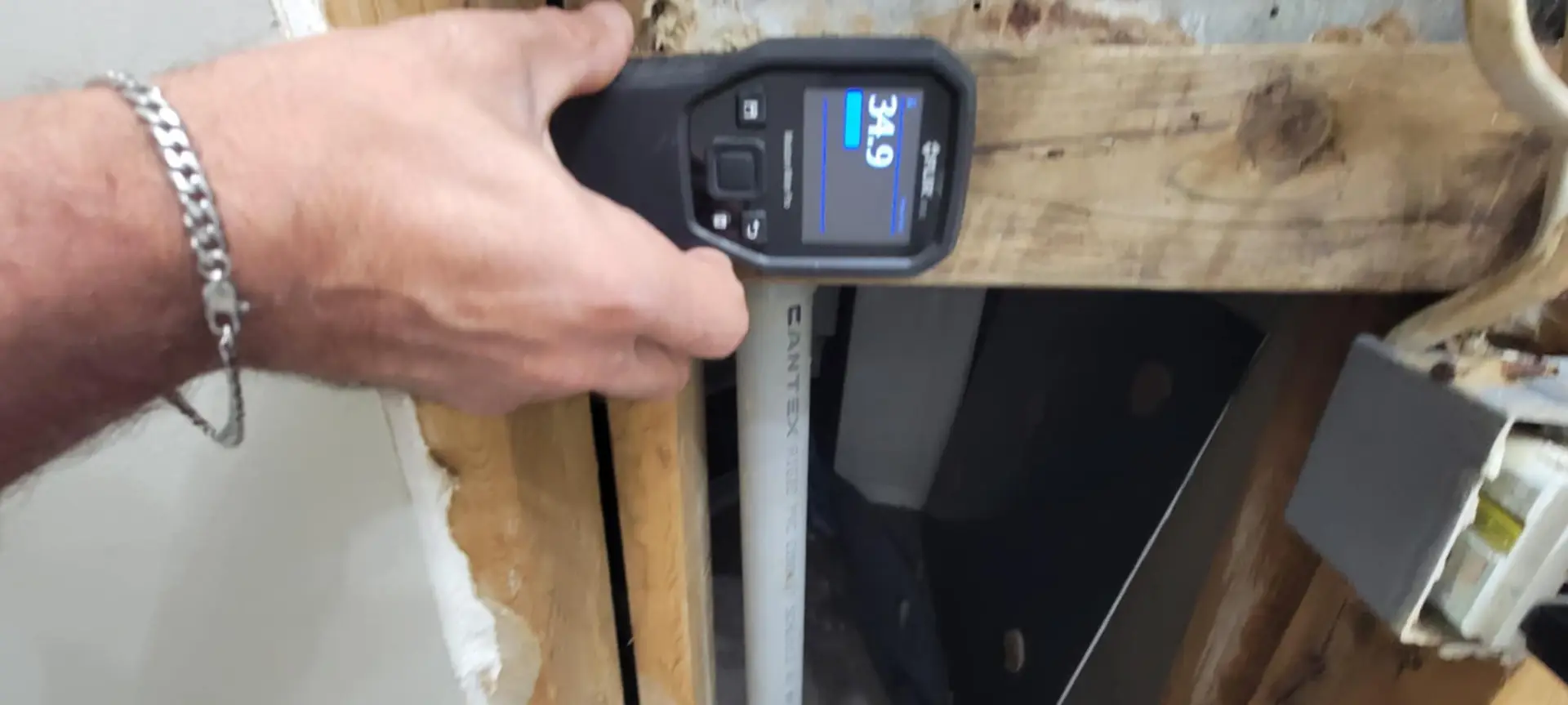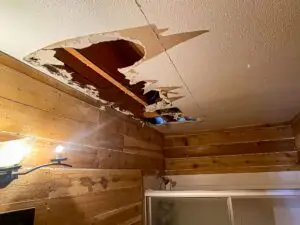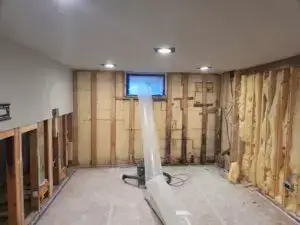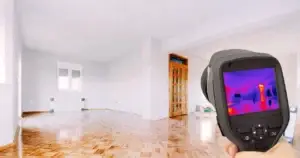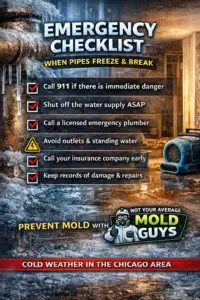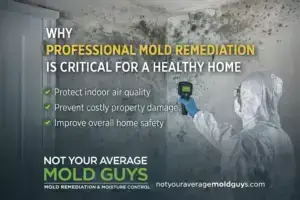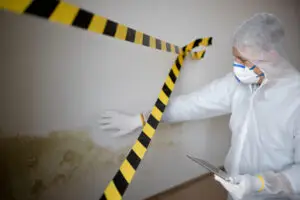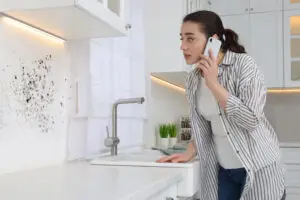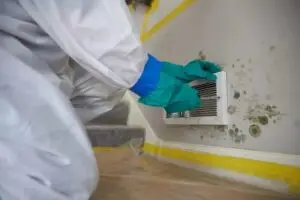Introduction:
If you own or manage rental property in the Chicago area, you already know how important it is to keep your units in good shape. But there’s one silent issue that can quickly turn a profitable investment into a costly nightmare: mold.
Mold doesn’t just affect walls and ceilings—it impacts tenant health, damages your reputation, and can even lead to legal action. In Chicago’s humid summers and drafty older buildings, mold is an especially persistent and often underestimated threat.
At Not Your Average Mold Guys, we’ve helped dozens of landlords across Chicagoland tackle mold infestations the right way. In this guide, we break down the real costs of mold in rental properties, how to stay compliant with tenant laws, and why early intervention is key.
Why Mold Is a Bigger Problem in Chicago Rentals Than You Think
Chicago’s climate creates the perfect storm for hidden mold growth:
-
Humid summers encourage condensation and dampness.
-
Aging buildings often have leaky plumbing, poor ventilation, or uninsulated walls.
-
Sealed-up winters trap indoor moisture.
For landlords managing older apartment buildings, condos, or multi-family homes, this means one overlooked drip or draft could lead to widespread mold behind walls, under floors, or in ceilings.
The Real Costs of Mold for Property Owners
Let’s break down the ways mold can cost you as a landlord:
1. Repair and Remediation Costs
Small mold issues caught early might cost a few hundred dollars. But larger infestations—especially ones hidden behind walls or under flooring—can spiral into thousands in demolition, remediation, and reconstruction.
2. Lost Rent or Vacancy
If tenants move out or a unit becomes uninhabitable during repairs, that’s lost income on top of repair bills.
3. Legal Action and Fines
In Illinois, landlords are legally responsible for maintaining a habitable residence. If mold causes health issues and you haven’t addressed it, you could face:
-
Lawsuits for medical damages
-
Orders to refund rent
-
Municipal fines or code violations
4. Reputation Damage
One public complaint on social media or Google Reviews about mold can scare off future tenants and hurt your brand.
Common Sources of Mold in Rental Properties
Even well-maintained buildings can harbor mold in hidden places. The most common sources we see in Chicago rentals include:
-
Leaky bathroom pipes behind walls
-
Poor ventilation in kitchens and bathrooms
-
Roof leaks in top-floor apartments
-
Condensation from single-pane windows or drafty walls
-
Flooding in basements or garden-level units
-
Tenant neglect, like not using fans or failing to report leaks
What Chicago Law Says About Mold in Rentals
While Illinois doesn’t have specific mold legislation, landlords are required by law to maintain safe, habitable housing under the Implied Warranty of Habitability. This means:
-
You must address any moisture or mold complaints promptly.
-
You cannot retaliate against tenants who report mold.
-
You could be liable for damages if mold is ignored and a tenant gets sick.
Additionally, under Chicago’s Residential Landlord and Tenant Ordinance (RLTO):
-
Tenants can withhold rent or terminate leases if habitability is breached.
-
You may be required to pay for temporary housing during remediation.
Bottom line: Ignoring mold isn’t just risky—it can be legally and financially disastrous.
Signs You Might Have a Mold Problem as a Landlord
Not all tenants will report mold, especially if they’re unsure what it looks like or think it’s “normal.” Here are signs you should act on:
-
Musty or earthy smell
-
Frequent maintenance requests about leaks, condensation, or peeling paint
-
Visible black or green spots in bathrooms, windows, or ceilings
-
Tenant complaints about chronic allergies, asthma, or respiratory issues
-
Soft drywall, buckling floors, or warped baseboards
Why DIY Mold Removal Isn’t Enough
Spraying bleach on visible mold might mask the problem—but it won’t eliminate it. Mold often grows in unseen places like:
-
Inside walls
-
Under flooring
-
Behind cabinets
-
In HVAC systems
Without proper containment, removal, and air filtration, mold spores can spread to other units, turning a one-room issue into a building-wide liability.
How Not Your Average Mold Guys Helps Chicago Landlords
We specialize in non-disruptive, legally sound, and highly effective mold remediation for rental and commercial properties. Our process includes:
1. Inspection & Moisture Detection
We use advanced tools (thermal imaging, moisture meters) to locate hidden leaks and affected materials without ripping everything open.
2. Clear Reporting for Landlords
Get documentation you can share with tenants, insurers, or attorneys showing exactly what was found and what’s being done.
3. Certified Mold Remediation
We follow IICRC and EPA guidelines for safe, effective removal—including HEPA air filtration, containment barriers, and disposal of contaminated materials.
4. Preventive Strategies
We help identify ventilation issues, plumbing risks, and other causes to prevent mold from coming back—saving you thousands long-term.
5. Fast Turnaround for Tenant Satisfaction
We work fast to get your unit back online—minimizing downtime and keeping your tenants happy.
Case Study: A 6-Unit Apartment in Logan Square
Problem: A property management company called us after tenants in two separate units complained of odors and chronic sinus issues.
Our Findings:
-
Undetected leak from a third-floor shower had been dripping into walls for months
-
Mold was found behind tile in two bathrooms and under the hallway flooring
Our Solution:
-
Contained and removed mold-affected drywall and subfloor
-
Dried and treated wall cavities
-
Rebuilt the bathrooms with mold-resistant materials
-
Installed exhaust fans to improve air circulation
The Result:
All six tenants remained housed during staggered repairs. No legal issues. The landlord now uses our team for yearly moisture inspections.
Tips for Landlords: Prevent Mold Before It Starts
-
Inspect properties regularly, especially after heavy rains or freeze-thaw cycles
-
Install bathroom/kitchen exhaust fans in older buildings
-
Educate tenants about running fans, reporting leaks early, and avoiding indoor humidity
-
Use mold-resistant drywall and caulk in renovations
-
Respond quickly to water-related maintenance requests
Final Thoughts: Don’t Let Mold Undermine Your Investment
Mold is more than a nuisance—it’s a health risk, a legal threat, and a silent profit killer for property owners. But when you catch it early, treat it professionally, and invest in prevention, it becomes manageable.
At Not Your Average Mold Guys, we partner with landlords, property managers, and real estate professionals across Chicago to protect their investments and their tenants.
Need a mold inspection or remediation quote for your Chicago rental property?
📞 Call us today and let’s get ahead of the issue—before it spreads.


